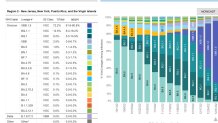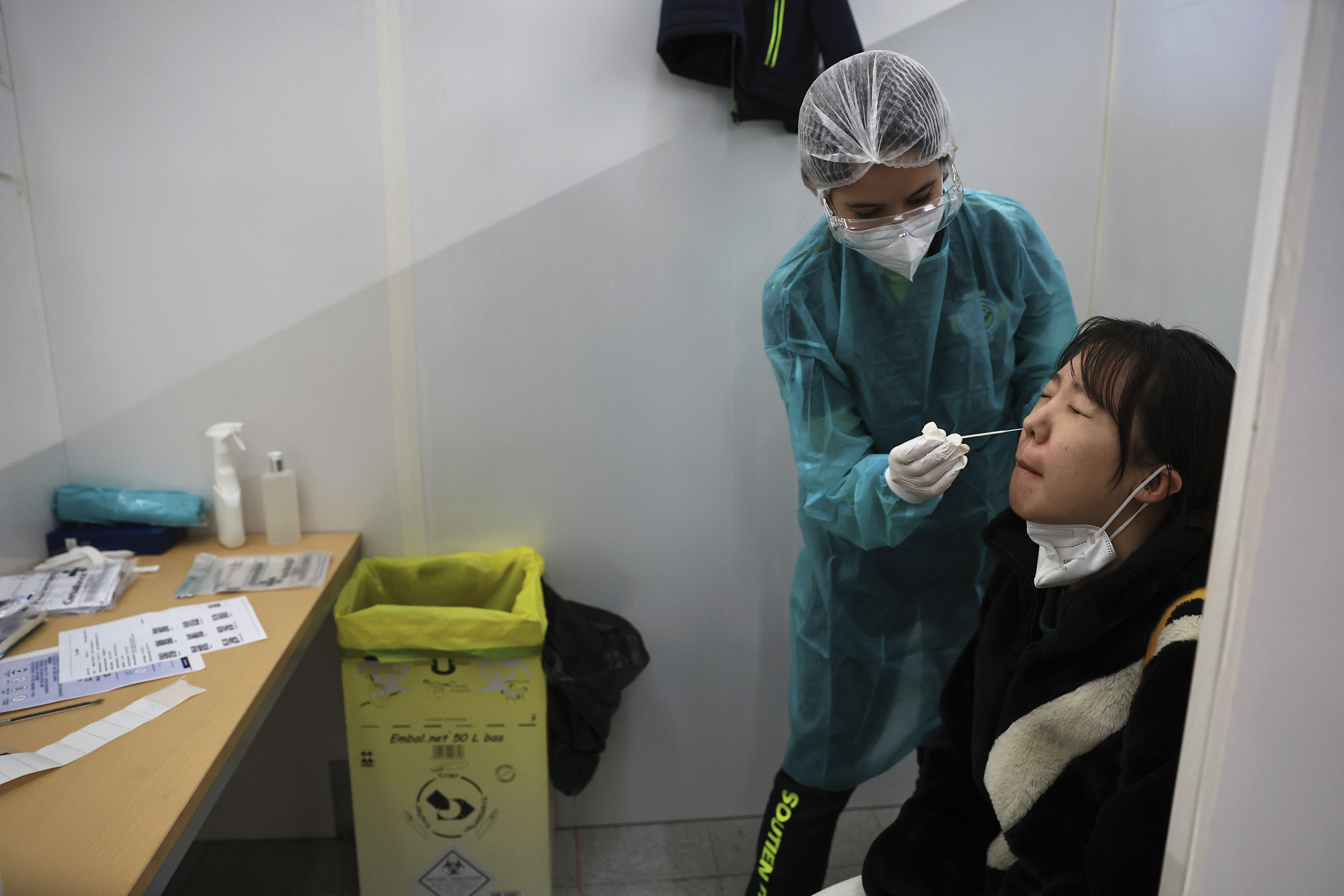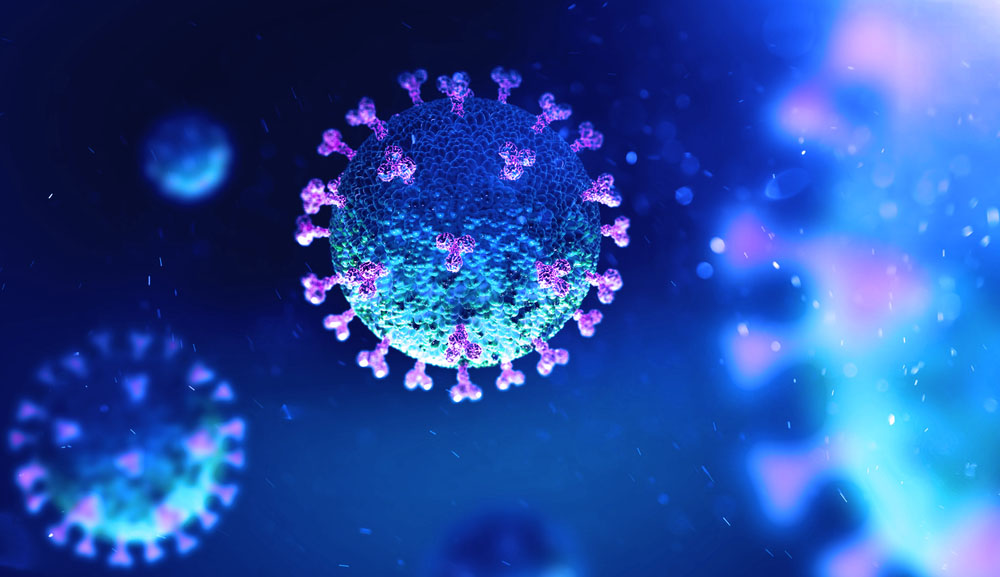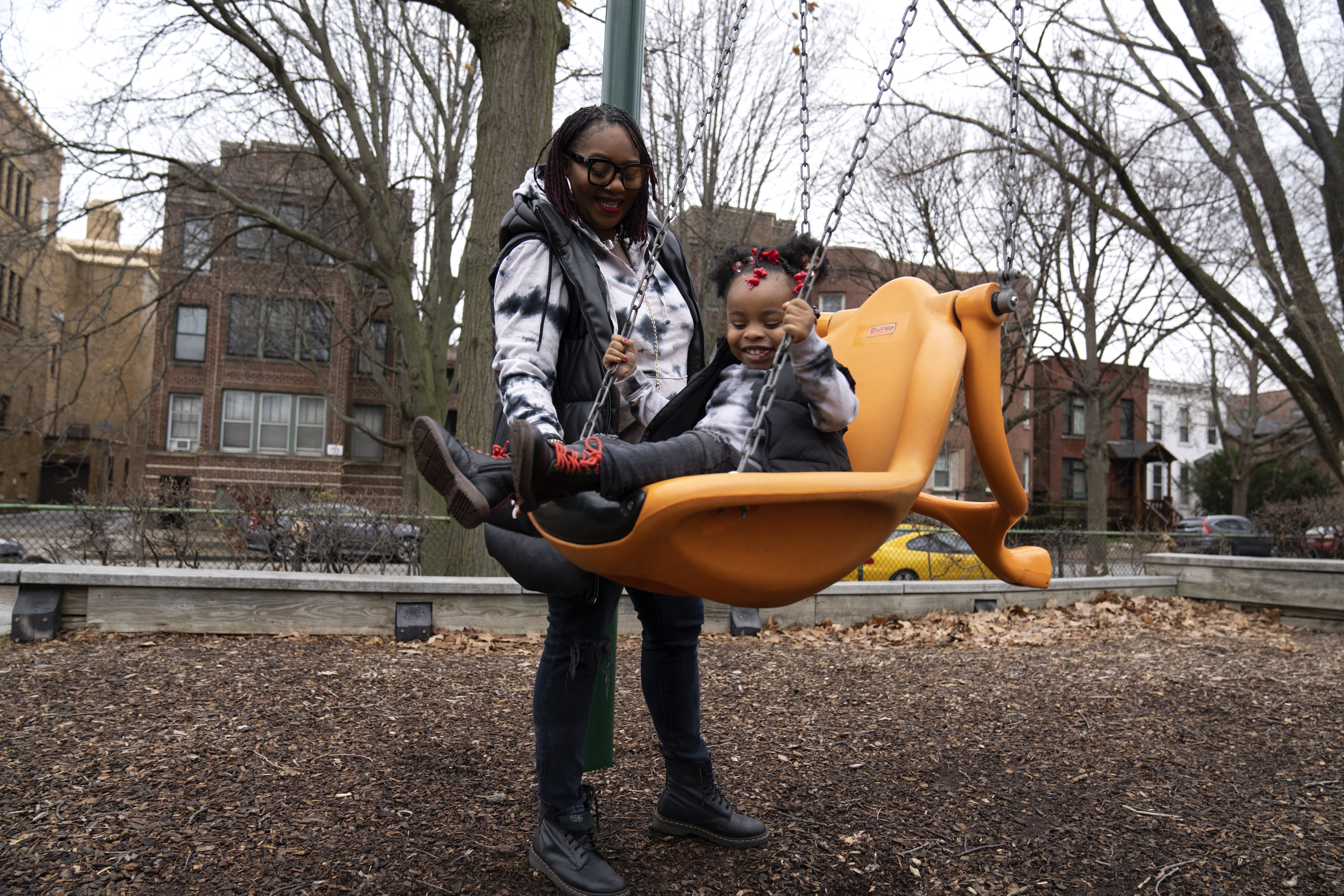A new most transmissible-yet COVID variant has established dominance in the New York area, fueling rising infection rates across the five boroughs as a looming nurses' strike and ongoing concerns about RSV in kids stoke fresh anxiety about the years-long pandemic.
That XBB.1.5 strain, another omicron descendant, is a highly contagious "recombinant" one spawned from two prior, and different omicron subvariants. Those two were considered more transmissible than their predecessors at the time they emerged, and the resulting fusion -- XBB.1.5 -- is believed to be that much more potent in terms of infectiousness.
At this point, the World Health Organization doesn't have any data to indicate it is more lethal or causes more severe cases, but the rate at which it is spreading, especially in the northeastern United States, is raising some questions.
Global health officials are worried about the rapid spread rate -- the number of people infected with XBB.1.5 has been doubling in the U.S. about every two weeks -- according to WHO COVID-19 Technical Lead Maria VanKerkhove.
"It is the most transmissible subvariant that has been detected yet," she told reporters this week. "The more this virus circulates, the more opportunities it will have to change."
And nowhere is XBB.1.5 circulating faster than the northeast, according to CDC data. Its latest update estimates the variant's prevalence in the New York region, which also encompasses New Jersey, Puerto Rico and the Virgin Islands, to be 72.2% but as high as 80.8%, compared with a 40.5% estimated prevalence and 61% high at the national level.
Get Tri-state area news delivered to your inbox. Sign up for NBC New York's News Headlines newsletter.

The CDC's Connecticut region, which also includes Maine, Massachusetts, New Hampshire, Rhode Island and Vermont, most of which typically reported lower than national average viral rates through the pandemic, has a slightly higher prevalence. The agency estimates XBB.1.5 could account for up to 86.2% of COVID virus circulating there.
The data are current only through New Year's Eve, meaning the numbers should rise across the board when the CDC next updates its variant data on Friday.
In New York City, health department data shows the rolling case average has fallen from its recent high in early December but is holding at a higher rate than city officials would likely prefer. Current numbers are around where they were in August in terms of new cases. COVID-related hospitalizations and deaths rose this winter in accordance with the case spike, but city health data shows both lines plunging in recent weeks as patients are discharged and recover.
At the state level, Gov. Kathy Hochul's latest COVID update puts the rolling positivity rate at 8.7%, the highest it's been since August. Breakthrough case rates have stabilized, but reinfection rates, especially among the unvaccinated and on Long Island, are rising. Hospitalizations have also been climbing, with Hochul reporting a statewide total of 4,350 as of Wednesday, an increase of nearly 390 over the prior day. More than 400 of those patients are in intensive care units.
The rolling hospitalization rate of 22.26 per 100,000 residents in the state's latest report is the highest it's been since February, health department data show.
Overall, though, the majority of all patients hospitalized with COVID in the state (54.8%) did not have the virus included as one of the reasons for admission. In other words, it was non-severe enough to be detected only via routine testing.
More COVID News
Increased infection rates needn't translate to increases in COVID-linked hospitalizations and deaths, public health and elected officials at all levels of government are quick to stress. Countermeasures like vaccination, frequent hand-washing, getting bivalent boosters and staying home when sick, along with masking, continue to work, they say.
"As we continue to welcome the new year, I urge everyone to remain vigilant and continue to use all available tools to keep themselves, their loved ones and their communities safe and healthy," Hochul said in her office's latest COVID update. "Stay up to date on vaccine doses, and test before gatherings or travel. If you test positive, talk to your doctor about potential treatment options."
The Democrat also continues to urge New Yorkers to get their bivalent COVID-19 vaccine boosters. To schedule an appointment for a booster, New Yorkers should contact their local pharmacy, county health department, or healthcare provider; visit vaccines.gov; text their ZIP code to 438829, or call 1-800-232-0233 to find nearby locations.




